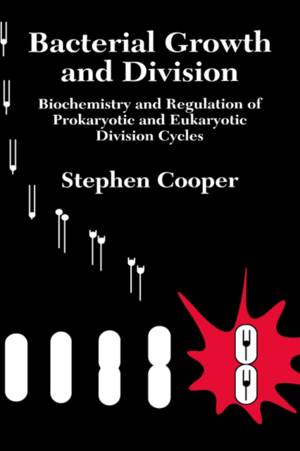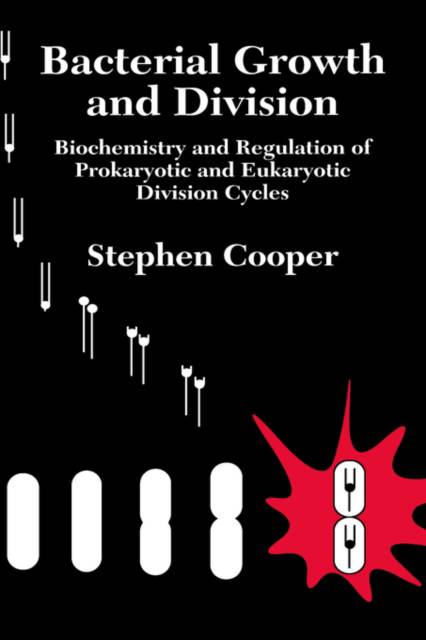
- Retrait gratuit dans votre magasin Club
- 7.000.000 titres dans notre catalogue
- Payer en toute sécurité
- Toujours un magasin près de chez vous
- Retrait gratuit dans votre magasin Club
- 7.000.0000 titres dans notre catalogue
- Payer en toute sécurité
- Toujours un magasin près de chez vous
Bacterial Growth and Division
Biochemistry and Regulation of Prokaryotic and Eukaryotic Division Cycles
Stephen CooperDescription
How does a bacterial cell grow during the division cycle? This question is answered by the codeveloper of the Cooper-Helmstetter model of DNA replication. In a unique analysis of the bacterial division cycle, Cooper considers the major cell categories (cytoplasm, DNA, and cell surface) and presents a lucid description of bacterial growth during the division cycle.
The concepts of bacterial physiology from Ole Maaløe's Copenhagen school are presented throughout the book and are applied to such topics as the origin of variability, the pattern of DNA segregation, and the principles underlying growth transitions.
The results of research on E. coli are used to explain the division cycles of Caulobacter, Bacilli, Streptococci, and eukaryotes. Insightful reanalysis highlights significant similarities between these cells and E.coli.
With over 25 years of experience in the study of the bacterial division cycle, Cooper has synthesized his ideas and research into an exciting presentation. He manages to write a comprehensive volume that will be of great interest to microbiologists, cell physiologists, cell and molecular biologists, researchers in cell-cycle studies, and mathematicians and engineering scientists interested in modeling cell growth.
Spécifications
Parties prenantes
- Auteur(s) :
- Editeur:
Contenu
- Nombre de pages :
- 501
- Langue:
- Anglais
Caractéristiques
- EAN:
- 9780121879051
- Date de parution :
- 26-02-91
- Format:
- Livre relié
- Format numérique:
- Genaaid
- Dimensions :
- 152 mm x 229 mm
- Poids :
- 870 g

Les avis
Nous publions uniquement les avis qui respectent les conditions requises. Consultez nos conditions pour les avis.






